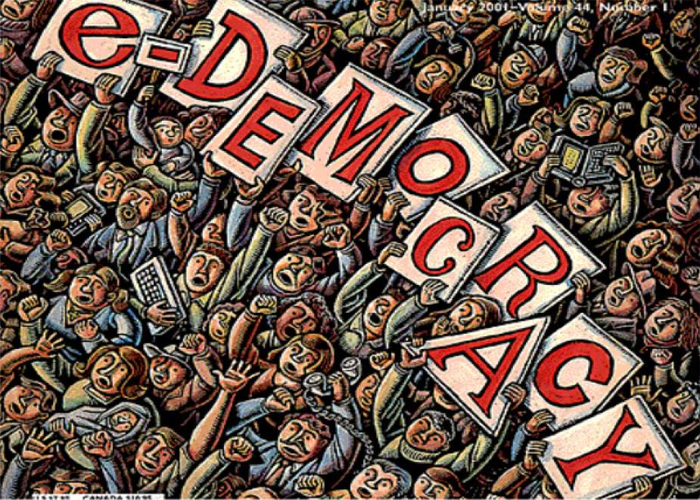Given the today’s political sophistries, the relationship between Islam and politics need to be enlightened in the context of Afghanistan not confining to the university classes. Unfortunately, some of the traditionalist thinkers such as Taliban still believe that the political system in Islam is caliphate although there is no theatrical support in Islamic resource about it. In fact, they mistake the already expired system such as emirate, kingdom, caliphate and alike to Islamic while they were the product of Islamic society. In fact, all of them have originated from Islamic history, not initial Islamic resources. Even, if we accept the caliphate as an Islamic system, it has formally abolished since 1923 and not applicable in the contemporary era. Therefore, there are theoretical gaps and questions what is the ideal Islamic system? What is the theoretical foundation of Emirate and emirate structure which is proposed by Taliban? Why the Taliban are not ready to clearly explain the content of Islamic government they have at their mind? And finally, what is the relationship between Islam and democracy?
If we have a deeper look in Islamic resources, we will find out that Islam is a flexible and moderate religion assigning the mechanism to demand of time and people but focused on its political goals and principles such as justice, pietism, unity, brotherhood and so forth. The main designer of this great religion knew that human society needs to go through different steps of human history such as childhood, adolescence, middle-aged and old age.
If he had designed a certain mechanism, it might fit in the body of human society when it was in the childhood but what about afterward when it grow up and reached in age of adolescence.
How is it possible to prescribe a prescription which was written for a child but still given to a middle-aged individual? How is it possible to give a dress which was sewn for a child but now given it to an old man? Although it is possible provide a set of general principles that can be applied and useful in all periods including childhood, adolescence, youth and old age periods. Therefore, the main messages of Islam as a general principle are justice, pietism, unity, and oneness and so on which are clearly mentioned in Islamic resources, but the mechanism are assigned to the Muslims to adapt based on requirement of time.
So, the old mechanism such as emirate, caliphate and kingdom neither are applicable in the current era and nor they are inseparable parts of Islam. We can easily divulge its historical and irreligious nature with a little research about its historical background and contexts.
With looking at the past and present we will come to know that they have expired and now it is already late to put them in the archive of the history. For example, pledge of allegiance (Bai-at) was the cultural legacy of ignorant Arab which was recognized as method in Islam but now replaceable with election. The political structure of Islam which had been established in Madina was based on ethnical and cultural customs of Arab society.
Thus, the concept of Ummah was not confined to only Muslim individual.
Based on agreement made under Prophet of Islam, Jews was considered as part of Muslim Ummah who lived in Islamic society. Therefore, none of these concepts has a divine nature but are the cultural and historical product and so replaceable with modern methods such as democracy and election which is also compatible with spirit of Islam. In the current era, human society has already crossed its childhood and so needs to a new mechanism.
Rationally, there is no better mechanism or method than a modified democracy to ensure the main principles of Islam and national interests which none are not avoidable in country such as Afghanistan.
As above mentioned, one of the main question is what is ideal and legitimate government in Islam? What types of political systems are recommended by Islam? It seems that Islam is an easy taking religion that’s why not appointed any specific mechanism but clearly emphasized on its main goal and principle. Based on Islamic resources and Muslim consensus, Justice is the main goal and principle of Islam.
The Quranic verses indicate the main goal of Quran is implementation of justice, pietism and social enlightenment.
In fact, reaching to human felicity and munificence is not feasible unless implementation of justice, pietism and social enlightenment in a society.
Therefore, the ideal Islamic government must be assessed on the basis of justice, pietism and cognition. Here, let’s remind the famous statement of Sayed Jamal Al Deen Afghan who said, “I saw Islam in west but Muslim in east.” More than one hundred years ago he realized that the nature and content of Islam is important, not its apparent crust or obsolescent methods and mechanisms. Therefore, there is no serious incompatibility between islam and democracy as long as it is used as method of reaching to social justice, pietism, cognition and overall a peaceful society.
Supposedly, if democracy is incompatible with Islamic rule and values, what systems are compatible? The kingdom, the Talibanism or Emirate system are never better than democracy as they are based on will of few corrupt and uncorrupt politicians while democracy can be conditionalized on mentioned principles and public will. In practice, the most important gifts of democracy are freedom, equality and sovereignty of people with certain mechanisms compatible with different social and cultural contexts while the important gift of aforementioned system is backwardness, violence, despotism and unaccountability.
Home » Opinion » What is the relationship between Islam and democracy?
What is the relationship between Islam and democracy?
| Mohammad Zahir Akbari

